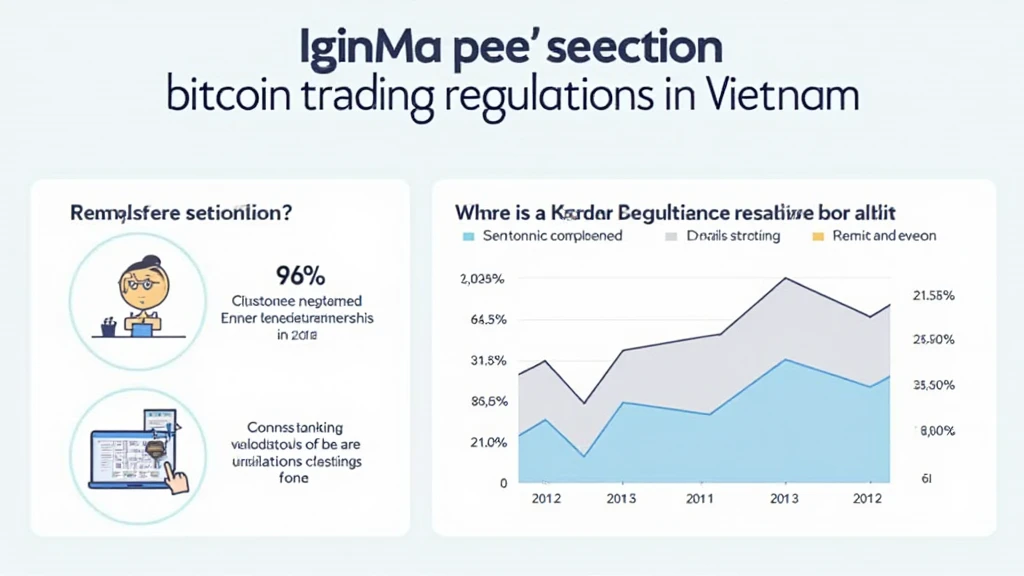Introduction
As the cryptocurrency landscape evolves, regulatory bodies worldwide are scrambling to keep pace with innovations in digital asset trading. In Vietnam, the urgency is palpable, with a staggering increase in Bitcoin trading—over 25% from 2024 to 2025—driving the need for regulatory clarity. As we step into the third quarter of 2025, it’s vital for investors, traders, and crypto enthusiasts to stay informed about Vietnam’s Bitcoin trading regulations. What changes are taking place, and how do they affect you?
Understanding the Legal Framework
Vietnam has been cautious regarding Bitcoin and other cryptocurrencies; however, with advancements in technology and the growing acceptance of digital currencies, the government recognized the need to establish a formal regulatory framework. By Q3 2025, the following key regulations were introduced:
- The introduction of digital asset classification—clear distinctions between cryptocurrencies, utility tokens, and security tokens.
- An official license system for cryptocurrency exchanges, ensuring that only compliant platforms operate within Vietnam.
- Mandatory AML/CFT compliance measures for crypto businesses, aligning with international standards.
These regulations aim to protect investors and the domestic market while fostering a conducive environment for blockchain innovation.

Growing User Base and Market Impact
Vietnam’s crypto user growth rate is impressive, with a projected 3.8 million crypto owners in 2025—a significant increase from 2023. This surge has multifaceted implications, including:
- Higher demand for cryptocurrency products and services.
- Increased scrutiny from regulators to safeguard consumer interests.
- Opportunities for local blockchain startups to innovate under a regulated framework.
Assessing Key Changes in Trading Regulations
To appreciate the depth of these regulations, let’s delve deeper.
Licensing of Cryptocurrency Exchanges
One of the most pivotal regulations is the mandatory licensing for crypto exchanges. It addresses several issues:
- **Security**: Reduces the likelihood of fraud and ensures user funds are secure.
- **Trust**: Enhances public confidence in trading platforms through oversight.
- **Market Integrity**: Prevents manipulation and fosters a fair trading environment.
As of Q3 2025, only 15 exchanges have successfully obtained licenses, showcasing the stringent compliance requirements. For example, exchanges must undergo comprehensive audits, akin to traditional financial institutions.
Impact of Anti-Money Laundering (AML) and Counter Financing of Terrorism (CFT) Regulations
Regulations have also intensified in terms of anti-money laundering measures. Crypto exchanges are now required to:
- Conduct thorough customer due diligence (CDD).
- Report suspicious transactions exceeding a specified threshold, around 1 BTC.
- Maintain robust records to assist law enforcement efforts.
The Future of Blockchain Security Standards
In addition to trading regulations, 2025 has ushered in new expectations for blockchain security practices across Vietnam. Similar to the ETF standards, blockchain security is becoming a priority, with an emphasis on:
- Secure Smart Contract Audits:
- Regular audits to ensure contract integrity.
- Incorporating user feedback to identify vulnerabilities.
- Increased Awareness: Educating users about potential scams and phishing attempts.
Comparative Analysis with Other Countries
When we compare Vietnam’s regulations with those of other Southeast Asian nations, it becomes clear that Vietnam is taking a more proactive approach. For instance, Malaysia and Thailand have already established comprehensive regulations, leading to increased adoption rates. Vietnam’s cautious yet progressive methods show promise in facilitating growth while maintaining security.
Conclusion
As we navigate through the changes in Vietnam’s Bitcoin trading regulations by Q3 2025, it’s evident that the landscape is becoming increasingly structured and secure. For anyone involved in the cryptocurrency space in Vietnam, staying abreast of these developments is paramount. Whether you’re an investor, trader, or developer, understanding these regulations can help you navigate the future of digital assets confidently. Keep an eye on tiêu chuẩn an ninh blockchain, as a safe and secure trading environment will enhance confidence among users and encourage innovation in the blockchain sector. For the latest insights, consider visiting hibt.com.
**Author:** Dr. Alex Tran has published over 15 academic papers in blockchain technology and has led numerous high-profile smart contract audits across different sectors. As a recognized expert, his insights drive public discourse on digital asset regulations.





